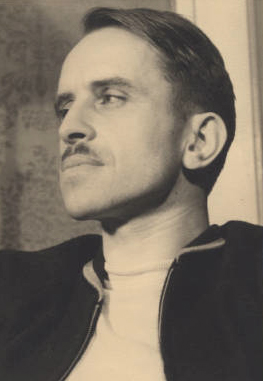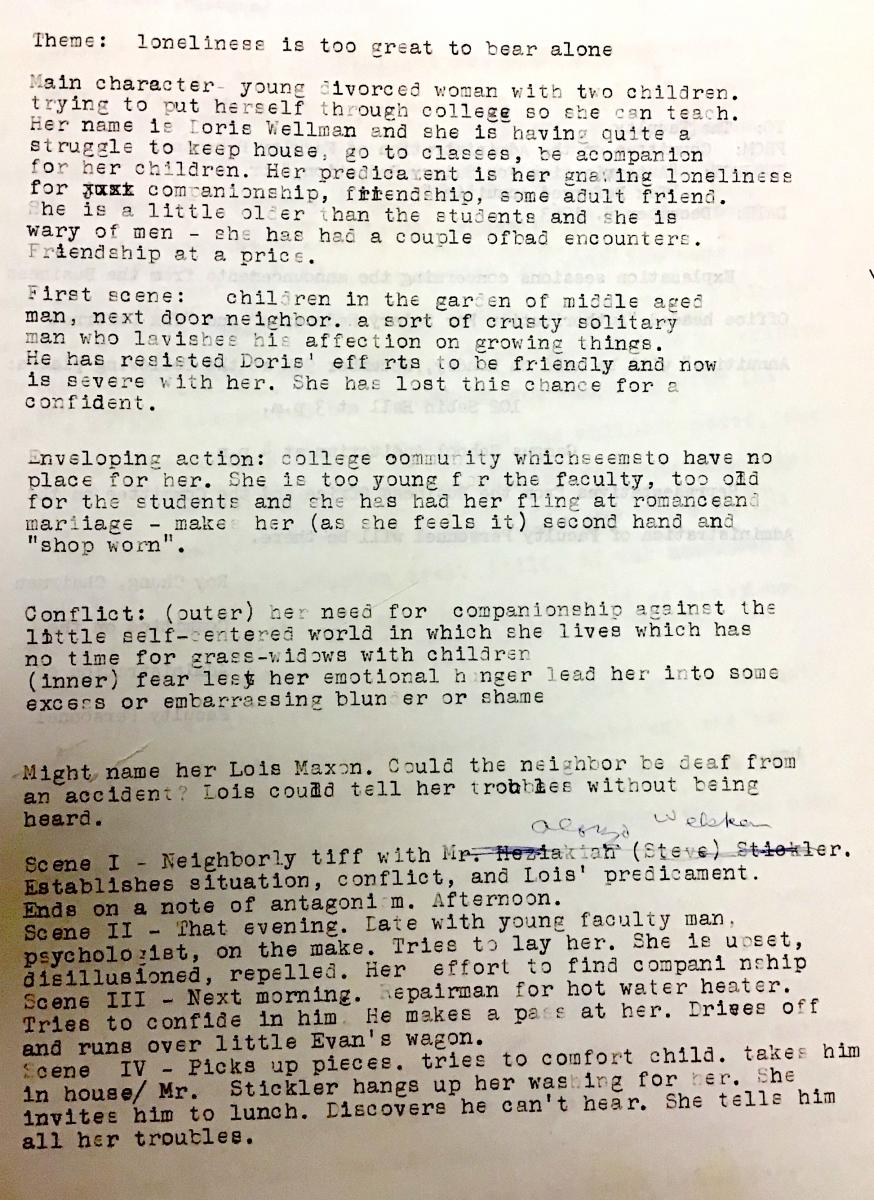Uncollected Fiction
Relationships and Community in James Hearst's Uncollected Short Fiction
Many of James Hearst’s short stories focus on the importance of creating and maintaining meaningful relationships. In some stories, this occurs by mending family connections and in others, building friendships and communities allows for growth or companionship. Much like his poetry, Hearst’s fiction takes place in vividly described rural settings.
In “America for Americans,” Hearst explores a timeless subject – the experience of growth in a man through compassion for a stranger. The cruel landlord of a German immigrant overcomes his bias as he comes to feel compassion for the German man who loses his son to war. This compassion leads to the beginning of a friendship and the landlord’s renewed belief that “if we are going to allow those people to enter the United States of America, we should take the added responsibility of making them into good Americans.” This illustration of growth in order to form more meaningful connections is also illustrated in “The Ego Eater,” where a prisoner learns that swallowing his pride will help him grow as a husband, father, and man. Throughout the story, he refuses to believe that he has done anything wrong because “his mind runs like that, like none of it was [his] fault.” He must “look forward to what [he] can do instead of resenting what has happened to [him]” in order to grow. In learning to “eat his ego,” the prisoner is able to start the process of mending his relationship with his wife and son.
Another aspect of relationship building that Hearst explores is that of overcoming loneliness to find or create supportive communities. In “The Speech,” a farmer is invited to speak at his alma mater about what a college education means to an average man. When he arrives on campus, he does not fin d warmth or access, but his return is celebrated by the old landlord that he visits while in town. Already feeling that he has intruded on an exclusive club, the farmer is downtrodden when told that they have found a more politically successful speaker and there is no longer “room at the table” for him. Feeling down, he finds support with the landlord and his friends that ask him to read his speech for them instead. Similarly, the young woman depicted in “The Confidant” also finds herself lacking support, as she has not established any meaningful adult relationships. As a non-traditional student on a college campus, she finds it difficult to form connections because everyone is either much older or much younger than her. It isn’t until the end, when she finds her neighbor in her backyard hanging her laundry on the line, that she finds someone to confide in. While he is deaf and cannot read her lips or hear what she is saying, his “eyes shone their merry smile” as he played with her children and she was able to vent her frustrations, confiding in him and creating a positive connection.
d warmth or access, but his return is celebrated by the old landlord that he visits while in town. Already feeling that he has intruded on an exclusive club, the farmer is downtrodden when told that they have found a more politically successful speaker and there is no longer “room at the table” for him. Feeling down, he finds support with the landlord and his friends that ask him to read his speech for them instead. Similarly, the young woman depicted in “The Confidant” also finds herself lacking support, as she has not established any meaningful adult relationships. As a non-traditional student on a college campus, she finds it difficult to form connections because everyone is either much older or much younger than her. It isn’t until the end, when she finds her neighbor in her backyard hanging her laundry on the line, that she finds someone to confide in. While he is deaf and cannot read her lips or hear what she is saying, his “eyes shone their merry smile” as he played with her children and she was able to vent her frustrations, confiding in him and creating a positive connection.
James Hearst’s fiction emphasizes just how important it is to build relationships and form communities in order to thrive
– Alyssa Minch
James Hearst: Uncollected Fiction
"America for Americans," American Legion Weekly, 10 Sept. 1924.
"Bachelor of Arts," Mother's-Home Life and the Household Guest, vol. 75 (April 1963), p.1.
"A Box of Candy," The Fiddlehead, vol. 72, Summer 1967, p.67.
"Breachy,". Today, vol. 21, Oct. 1965, p.11.
"The Confidant," Kansas City Magazine, 1966, p.11.
"The Ego Eater," The Reign of the Sacred Heart, vol. 33, Dec. 1961, p.23.
"A Fable for Farmers," Diamond Bulletin, 12 Jan. 1940, p.1. [available online in draft form, titled "A Modern Farm Fable"]
"Left Is Right," Kind Words, Nov. 28, 1926.
"A Matter of Roots," Mother's-Home Life and the Household Guest, vol. 71, March 1959, p.1.
"Mr. Hoper and the Blessed Damozel," Arts and Letters, vol. 11, Spring 1969, p.39.
"Old Joe," Midland, vol. 13, Dec. 1927, p.317.
"The Speech," Discourse: A Review of Liberal Arts, vol.8, Summer 1965, p.219.
"Trifocals," Premiere, vol.4, 1965, p.23.
"The Twine Trick," Youth's World, 6 Feb. 1937.
